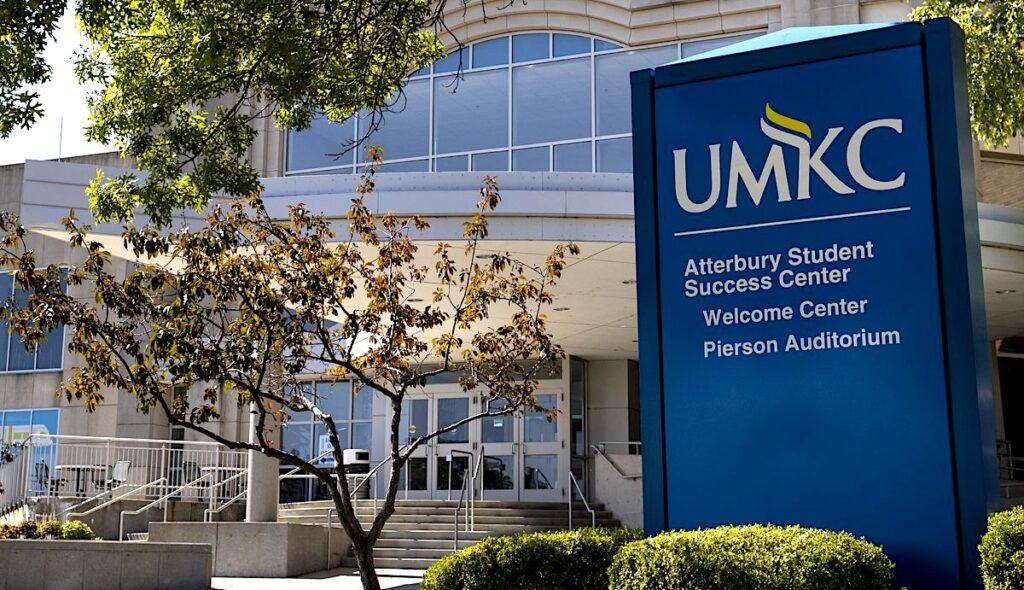US Navy’s STEM ‘equity’ program prioritized candidates, internships based on race, docs show
(Daily Caller News Foundation) – The U.S. Navy approved more than $750,000 for a project that, while purporting to “equitably” increase the number of students interested in serving in the…

(Daily Caller News Foundation) – The U.S. Navy approved more than $750,000 for a project that, while purporting to “equitably” increase the number of students interested in serving in the Navy’s STEM fields, prioritized recruiting underrepresented minority students, documents obtained by the Daily Caller News Foundation show.
The University of Missouri–Kansas City (UMKC) proposed a way to encourage students to pursue degrees in fields of science, technology, economics and math (STEM) amid pressures for the U.S. military to out-compete adversaries in technological development, according to the since-approved application obtained by the Functional Government Initiative through a records request and provided to the DCNF.
Although the project was framed as providing an opportunity for all students to break into the STEM fields based on the students’ qualifications, the Navy granted a budget extension to include 75 scholarships for underrepresented minority students and gave them first selection for the few on-campus paid research internships created through the program.
The proposal estimated between 44% and 75% participation by the minority students.
“Implementation of this innovative program will increase the number of STEM students from diverse backgrounds who gain competitive skills and real-world experience in Naval priority areas, who graduate with STEM degrees, and who join the STEM workforce,” the proposal reads.
Daniel McIntosh, the lead project manager, received permission to exceed the funding ceiling in order provide tuition scholarships for the “Research Skills Training” (RST) classes to 75 students from underrepresented minority groups, the documents show.
Scholarships and first consideration for the paid internships would allow the school “to meet our equity-focused goals” and “eliminate the financial barrier of enrolling” in tailored research courses, the proposal states.
“The Navy funding will support the development of competency-based research skills training courses, provide financial aid for historically underserved students, and offer paid internships for summer research experiences in any of the four research areas,” a 2021 post on the UMKC website reads.
The program would expose sophomore UMKC students in STEM degree programs to similar careers in the Navy, provide them with skill-building opportunities and offer the opportunity to compete for 54 paid, on-campus internships, the proposal states. In the fall of junior year, the students would apply for internships with the Navy.
Each year, the school would offer four new RST courses designed to build skills relevant to the Navy’s research priorities.
Each credit hour costs $301.60, or $904.80 total per student per course over three years of the program, according to the budget justification. Scholarships for underrepresented minorities apparently pushed the course over the Navy’s budget limit, for a total of more than $67,860 over the three years, although it wasn’t clear how much of that amount contributed to the budget overrun. The exact funding amount was redacted.
“McIntosh was approved to submit a budget over the $750,000 limit per Dr. Marielle Hjelm on 6 October 2020. The rationale for this budget extension is to include additional Underrepresented in STEM Tuition Scholarships for students interested in enrolling in RST courses,” the proposal stated.
The project is titled “Equity Forward Workforce Development Pipeline for Naval STEM Superiority” and was budgeted for $758,280 overall.
UKMC is listed as a partner in fiscal year 2020 on the Navy’s website for Naval STEM student initiatives, which is run out of the Office of Naval Research. UKMC received the grant in 2021, according to the university’s website, which mentions that a final report will be completed at the end of the project period “to provide program leaders and stakeholders a multi-faceted view of the overall impact and efficacy of the program.”
The project’s planned run spans from June 1, 2021 to May 31, 2024, the proposal shows.
“The project outcome will be an equity-minded educational pathway for sustainably increasing the number of applications to Naval lab/industry internships and careers,” the project abstract in the proposal stated.
UMKC proposed to create a new pipeline of STEM professionals that was both “equitable” and based on the student’s skills. It aimed to expose more than 3,000 freshmen at UMKC to Naval STEM careers.
UMKC hoped to create “a novel workforce pipeline that will provide an equitable and competency-based recruitment/training path for cultivating a diverse, agile, and world-class STEM workforce,” the proposal read. It noted that between 30% and 40% of incoming UMKC students say they plan to participate in research, but most never follow through.
“The United States Navy is constantly looking for ways to grow our science, technology, engineering, and math workforce. As such, it is critical we reach all demographics of the U.S. population,” Alexandra Landsberg, director of Naval STEM Education and Outreach Program, told the DCNF in a statement.
“Naval STEM efforts to broaden our workforce are multifaceted, and encourage a balanced and top-notch team reflecting our changing national demographics, and a military continuing to lead in an increasingly challenging global environment,” she added.
McIntosh served as UMKC’s Director of STEM Education Research and Chair of the Department of Physics and Astronomy, according to a biography included in the proposal. He did not immediately respond to the DCNF’s request for comment.



